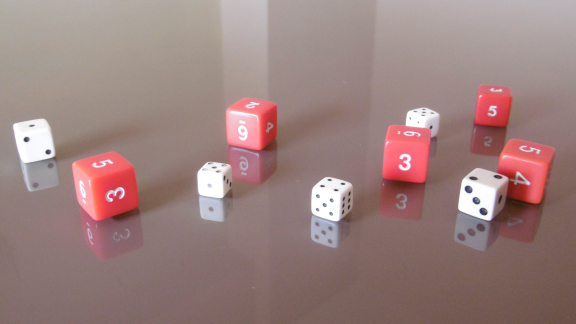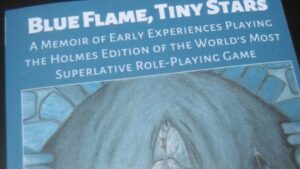polyhedron noun
: a solid formed by plane faces
According to Webster’s, the plural of polyhedron is polyhedrons or polyhedra. When made from high-impact material and their faces numbered or pipped, they’re called dice. The singular as well as the plural have variations. We may say, “one die, two dice;” “one dice, two dice;” or “one dice, two dices.”
We may say, “one die, two dice;” “one dice, two dice;” or “one dice, two dices.”
Many 20th-century wargames texts from British realms employ the singular dice. Though I began adventure gaming in 1980s America, where “die” was the norm, my early wargames career, which started in the 2010s, was informed by British wargamers Tony Bath and his friend and wargames opponent, Donald Featherstone, who was a prolific author of wargaming books.
Outdoor Survival (Avalon Hill, 1972) simulates the struggle to survive in a hostile wilderness. While he uses the singular die for rolling, designer Jim Dunnigan avoids the verb “to die” in reference to the endgame. There is no notion of character in the rules. In the final instruction of How to Play, when he must indicate the losing outcome for the player, Dunnigan prefers the construction “has not ‘survived.’”
In DONJON LANDS, we never say die. We say “dice” and “has not survived.”

